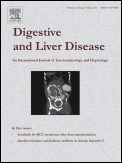
METABOLISM-CLINICAL AND EXPERIMENTAL
Scope & Guideline
Advancing the Science of Metabolic Health
Introduction
Aims and Scopes
- Metabolic Disorders and Diseases:
The journal emphasizes research on various metabolic disorders, including diabetes, obesity, metabolic syndrome, and non-alcoholic fatty liver disease (NAFLD), exploring their pathophysiology, diagnosis, and treatment strategies. - Clinical Implications of Metabolism:
Publications often focus on the clinical implications of metabolic research, including how metabolic dysfunction impacts overall health and contributes to comorbidities such as cardiovascular diseases and renal impairment. - Innovative Therapeutics and Pharmacotherapy:
The journal highlights advancements in pharmacotherapy for metabolic disorders, including the efficacy of new drugs, combination therapies, and the role of lifestyle interventions in managing these conditions. - Biomarkers and Diagnostic Tools:
Research on biomarkers for diagnosing metabolic disorders and assessing disease progression is a core area, with studies exploring the use of novel diagnostic tools and technologies. - Translational Research and Clinical Trials:
The journal features studies that bridge basic metabolic research with clinical applications, focusing on translational research findings and results from clinical trials. - Genetic and Epigenetic Influences:
Studies examining genetic factors influencing metabolic diseases, as well as epigenetic modifications and their implications for disease progression, are regularly included. - Systematic Reviews and Meta-analyses:
The journal publishes systematic reviews and meta-analyses that synthesize existing research, providing comprehensive insights into the state of knowledge regarding metabolic disorders.
Trending and Emerging
- Omics Technologies in Metabolism Research:
There is an increasing focus on the application of omics technologies (genomics, proteomics, metabolomics) to understand metabolic disorders at a systems level, enabling personalized medicine approaches. - Role of Gut Microbiome in Metabolism:
Research exploring the relationship between gut microbiota and metabolic health is gaining traction, emphasizing the gut's role in influencing metabolic outcomes and potential therapeutic strategies. - Mental Health and Metabolic Disorders:
Emerging studies are investigating the interplay between mental health conditions (such as depression and anxiety) and metabolic disorders, highlighting the psychosocial aspects of metabolic diseases. - Digital Health and Remote Monitoring:
The incorporation of digital health technologies for monitoring and managing metabolic diseases, including continuous glucose monitoring and telemedicine, is becoming a prominent research area. - Interdisciplinary Approaches to Metabolic Health:
There is a trend towards interdisciplinary research that combines insights from nutrition, exercise science, pharmacology, and behavioral health to develop comprehensive treatment strategies for metabolic disorders. - Focus on Pediatric Metabolic Disorders:
An emerging focus on metabolic disorders in pediatric populations, including obesity and type 2 diabetes, is being recognized for its long-term health implications. - Impact of COVID-19 on Metabolic Health:
Research examining the impact of COVID-19 on metabolic health, including the exacerbation of existing conditions and the emergence of new metabolic disorders post-infection, is increasingly relevant.
Declining or Waning
- Traditional Dietary Approaches:
Research focusing solely on traditional dietary interventions for metabolic diseases has decreased, as newer, more innovative approaches and pharmacological treatments gain attention. - Basic Biochemical Mechanisms:
There appears to be a waning interest in purely biochemical studies that do not translate into clinical applications or therapeutic strategies, as the emphasis shifts towards translational research. - Single-Factor Studies:
Studies investigating the impact of isolated factors on metabolic health without considering the multifactorial nature of metabolic disorders are becoming less frequent, with a growing preference for integrative and systems biology approaches. - Epidemiological Studies without Clinical Correlation:
While epidemiological studies remain important, there is a noticeable decline in studies that do not connect findings to clinical outcomes or implications, as the journal prioritizes research with direct clinical relevance.
Similar Journals

DIGESTIVE AND LIVER DISEASE
Advancing knowledge in gastroenterology and hepatology.DIGESTIVE AND LIVER DISEASE is a prominent journal published by Elsevier Science Inc, dedicated to advancing the field of gastroenterology and hepatology. With an ISSN of 1590-8658 and an E-ISSN of 1878-3562, this journal has established itself as a significant resource within the academic community, especially considering its Q2 ranking in both gastroenterology and hepatology categories as of 2023. Spanning from 2000 to 2024, the journal presents a diverse array of peer-reviewed articles, clinical studies, and review papers that explore the latest advancements and research findings in digestive and liver diseases. The journal's robust impact, reflected in its Scopus rankings—40th out of 167 in gastroenterology and 28th out of 82 in hepatology—highlights its critical role in shaping practices and understanding in these vital areas of medicine. With open access options available, DIGESTIVE AND LIVER DISEASE aims to make high-quality research accessible to a wider audience, thereby encouraging collaboration and innovation. Researchers, healthcare professionals, and students alike will find valuable insights into the complex mechanisms, diagnostics, and therapeutic strategies pertinent to digestive and liver health.

Turkish Journal of Endocrinology and Metabolism
Advancing Global Knowledge in Endocrinology and MetabolismThe Turkish Journal of Endocrinology and Metabolism, published by AVES, is a prominent platform dedicated to advancing research in the fields of endocrinology, diabetes, and metabolism. As an Open Access journal since 2002, it provides unrestricted access to its content, fostering a global exchange of knowledge among researchers, clinicians, and students. Operating from Turkey, this journal plays a crucial role in disseminating innovative findings related to endocrine disorders and metabolic diseases. While its current Q4 quartile rankings in both Endocrinology and Internal Medicine underscore areas for growth, they also signify the journal’s commitment to enhancing its impact within these disciplines. The journal emphasizes the development of locally relevant research while encouraging international contributions, thus bridging gaps in global health discourse. Engage with cutting-edge research that shapes clinical practices and informs public health policies by submitting your work or exploring the journal’s vast archive from 2009 to 2023.

TRENDS IN ENDOCRINOLOGY AND METABOLISM
Shaping the future of endocrinology and diabetes.TRENDS IN ENDOCRINOLOGY AND METABOLISM, published by CELL PRESS, stands as a pivotal resource in the fields of endocrinology, diabetes, and metabolism. With its ISSN 1043-2760 and E-ISSN 1879-3061, this esteemed journal has been a leading platform since its inception in 1989, currently projected to span until 2024. Recognized within the top quartile (Q1) of its category, it boasts impressive Scopus rankings, holding the 4th position in Endocrinology and 8th in Endocrinology, Diabetes, and Metabolism. These rankings underscore its significant impact, evidenced by an impressive percentile rank of 97th and 96th respectively. The journal is committed to facilitating the dissemination of cutting-edge research and innovative insights, making it an essential read for researchers, clinicians, and students seeking to stay informed on the latest advancements in these critical fields. With a robust focus on providing thorough reviews and original research articles, TRENDS IN ENDOCRINOLOGY AND METABOLISM continues to shape the understanding and treatment of metabolic disorders.

Current Obesity Reports
Exploring innovative approaches to obesity challenges.Current Obesity Reports, an esteemed journal published by SPRINGER, serves as a pivotal platform for scholars and practitioners in the field of obesity research. With its ISSN of 2162-4968, this journal has been recognized within the competitive landscape of Medicine & Internal Medicine, achieving a commendable Scopus rank of #11 out of 167, placing it in the top 93rd percentile. Launched in 2012 and covering critical developments in obesity up to 2024, this journal synthesizes innovative research, evidence-based practices, and comprehensive reviews that cater to a diverse audience, from researchers to public health professionals. While currently not offering open access options, it remains dedicated to advancing knowledge and fostering discussions that address the multifaceted issues related to obesity, its public health implications, and treatment methodologies. For those involved in tackling obesity challenges, Current Obesity Reports stands as a vital resource, contributing significantly to the discourse and scholarship in the field.

HORMONE AND METABOLIC RESEARCH
Pioneering Research for Health and Disease InsightsHORMONE AND METABOLIC RESEARCH, published by GEORG THIEME VERLAG KG, stands as a reputable platform in the fields of biochemistry, endocrinology, and metabolism since its establishment in 1969. This peer-reviewed journal provides critical insights and advancements in the intricate relationships between hormones and metabolic processes, catering to researchers, healthcare professionals, and students alike. With an impressive convergence of knowledge spanning over five decades, it maintains a commendable Q3 ranking in multiple categories, including Biochemistry, Clinical Biochemistry, and Endocrinology, highlighting its contribution to cutting-edge scientific discourse. Although not an open-access journal, it offers a plethora of access options for readers and institutions, ensuring that vital research reaches those who need it most. Located in Stuttgart, Germany, the journal is positioned at the forefront of influential research in hormone and metabolic studies, emphasizing its importance for ongoing investigations into health and disease.

JOURNAL OF PEDIATRIC ENDOCRINOLOGY & METABOLISM
Pioneering Discoveries in Pediatric Metabolic HealthThe JOURNAL OF PEDIATRIC ENDOCRINOLOGY & METABOLISM, published by Walter de Gruyter GmbH, is a reputable peer-reviewed journal dedicated to advancing the field of pediatric endocrinology and metabolism. Since its inception in 1985, this journal has become a vital resource for professionals and researchers, providing insights into the latest advancements, clinical practices, and foundational research in the care of children with endocrine disorders. With a noted Q3 ranking in Endocrinology, Diabetes and Metabolism, and a robust focus on Pediatrics, Perinatology, and Child Health, it addresses important topics such as hormonal imbalances and metabolic syndromes in young populations. Despite its non-open access status, it continues to play an essential role in bridging the knowledge gap within our understanding of children's health and disease, contributing significantly to the progress in this specialized field.

DIABETES & METABOLISM
Fostering Excellence in Diabetes Research and EducationDIABETES & METABOLISM, published by MASSON EDITEUR in France, is a leading academic journal dedicated to the fields of endocrinology, diabetes, and metabolism. With an impressive Impact Factor reflecting its esteemed reputation, the journal has been ranked in the Q1 category across multiple disciplines including Endocrinology, Internal Medicine, and more, showcasing its significance and influence in the scientific community. Since its inception in 1996 and continuing its contributions through 2024, DIABETES & METABOLISM systematically disseminates high-quality research findings, reviews, and clinical studies aimed at furthering knowledge and encouraging innovation in metabolic diseases. Although not an open-access journal, it ensures that valuable research is accessible to a broad audience through institutional subscriptions and affiliations. As a key resource for researchers, clinicians, and students alike, this journal stands at the forefront of advancing understanding and treatment options in diabetes and related metabolic disorders, making it an essential addition to any academic library.

Annals of Pediatric Endocrinology & Metabolism
Connecting global experts to enhance child health outcomes.Annals of Pediatric Endocrinology & Metabolism, published by the Korean Society of Pediatric Endocrinology, is a vital resource for researchers, healthcare professionals, and students in the fields of endocrinology, diabetes, and pediatric health. With its commitment to open access since 2012, the journal facilitates the dissemination of groundbreaking research on pediatric endocrine disorders and metabolic diseases, ensuring that vital knowledge is accessible to a global audience. The journal maintains a reputable standing with a 2023 Scopus rank of #92 in Pediatrics and a Q3 quartile in Endocrinology, highlighting its impact on the field. Originating from South Korea, the journal fosters a collaborative network of researchers and advocates best practices in pediatric care through interdisciplinary studies. The Annals not only enhances scientific understanding but also emphasizes practical applications aimed at improving child health outcomes, making it an essential publication for academics and practitioners alike.

Archives of Endocrinology Metabolism
Exploring the intricacies of metabolism and endocrine health.Archives of Endocrinology Metabolism is a distinguished open-access journal dedicated to advancing the field of endocrinology and metabolism. Published by SBEM-SOC BRASIL ENDOCRINOLOGIA & METABOLOGIA, this journal has established itself as a vital platform for researchers, clinicians, and scholars since its inception in 2008. With an ISSN of 2359-3997 and E-ISSN of 2359-4292, it aims to disseminate high-quality research articles that explore the latest advancements in endocrinology, diabetes, and metabolism. As of 2023, it has achieved a commendable Q3 ranking in its field, demonstrating its relevancy and increasing visibility among peers. The journal's focus spans various sub-disciplines, including hormonal regulation, metabolic disorders, and innovative therapies, making it an essential resource for both emerging professionals and seasoned experts alike. With a rich repository of research from Brazil and beyond, Archives of Endocrinology Metabolism continuously seeks to contribute to the ongoing dialogue and collaboration within the global scientific community.

DIABETES OBESITY & METABOLISM
Innovating treatments through rigorous research in endocrinology.DIABETES OBESITY & METABOLISM, published by Wiley, is a premier international journal dedicated to the fields of endocrinology, diabetes, and metabolic disorders. With an impressive impact factor and its status as a Q1 journal in multiple categories—including Endocrinology and Internal Medicine—this publication is highly regarded in the academic community. Since its inception in 1999, the journal has served as a crucial platform for the dissemination of cutting-edge research, reviews, and clinical studies, driving advancements in understanding and treatment of diabetes and obesity. Researchers and professionals alike benefit from its rigorous peer-review process and extensive reach, as it aims to bridge the gap between laboratory findings and clinical applications. Although not an Open Access journal, articles are accessible through institutional subscriptions, ensuring that vital knowledge reaches those committed to enhancing patient care and expanding the scientific body of work in these pivotal areas.